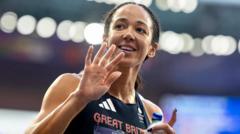Why Title IX doesn’t apply in lucrative college sports deals

The U.S. Department of Education’s recent decision to clarify that Title IX does not apply to Name, Image, and Likeness (NIL) deals has sparked plenty of debate, and rightly so. On its face, the ruling may seem unfair. After all, if male athletes are raking in significantly more NIL money than their female counterparts, doesn’t that widen the gender pay gap in college sports?
The short answer is yes. But here’s the long answer: As legally frustrating as it may feel to some, this decision is correct.
NIL money is fundamentally different from financial aid. To treat the two the same would be stretching Title IX beyond its intended scope. That said, colleges still bear responsibility for ensuring that male and female athletes have equal opportunities to cash in.
Let’s start with the basics of NIL. Before 2021, NCAA athletes were prohibited from earning compensation from their personal brand. The long-standing argument was that allowing payments would disrupt the “amateurism” model of college sports. But that logic crumbled under legal and public pressure, culminating in the Supreme Court’s unanimous decision in NCAA v. Alston, which opened the door for athletes to be compensated for their NIL.
The floodgates burst open. Suddenly, college athletes — especially those in high-profile sports like football and men’s basketball — were signing endorsement deals, inking sponsorship agreements, and securing compensation for appearances. It was the first true free-market approach to compensating student-athletes, and it was long overdue.
Enter the Biden administration’s now-rescinded attempt to apply Title IX to NIL money.
The administration originally argued that NIL money facilitated by schools should be distributed in proportion to male and female athletes, much like scholarships and financial aid. That argument, while rooted in a genuine desire to ensure gender equality in college sports, was legally weak. Title IX is designed to ensure that schools provide equal opportunities for male and female athletes, not to regulate individual earnings in a free market.
And the very nature of NIL means that the compensation comes from third parties — brands, businesses and booster collectives — not from the schools themselves.
Equating NIL deals to financial aid was always going to be a legal stretch. Craig Trainor, the acting assistant secretary for civil rights, was correct in stating that such a claim would require a “clear legal authority” that simply does not exist.
This leaves female athletes in a position where market forces, rather than federal law, determine their earning potential. The reality is that NIL earnings are overwhelmingly dominated by male athletes, particularly those in revenue-generating sports. The top earners are almost exclusively football and men’s basketball players, with a handful of female athletes — such as LSU’s Angel Reese or former UConn star Paige Bueckers — breaking through. This isn’t necessarily because female athletes aren’t marketable; rather, it’s a reflection of which sports drive the most attention, media coverage and commercial interest.
Does this mean schools have no responsibility to address the disparity? Absolutely not. Colleges need to step up in a major way to ensure that female athletes have the same opportunities as their male counterparts to capitalize on NIL deals.
That starts with visibility. One of the biggest barriers to NIL opportunities for female athletes is a lack of media exposure. The more coverage women’s sports receive, the more brands will invest in female athletes. Schools control much of this exposure through their marketing, social media and promotional efforts. They decide which athletes get featured in campaigns, which games get prime-time slots, and how resources are allocated for branding and visibility. If schools are truly committed to gender equity, they should be actively working to elevate the profiles of their female athletes.
Schools need to ensure that female athletes have access to the same networking and educational resources as their male peers. Many universities have established NIL collectives and partnerships designed to help athletes secure deals and maximize their earnings. If those collectives are disproportionately benefiting male athletes, then schools need to reassess their approach. Female athletes should have the same institutional support, mentorship and financial literacy education as male athletes so that they can navigate the NIL landscape just as effectively.
Ultimately, while the Department of Education’s decision is legally sound, it should not be viewed as an excuse for schools to ignore gender equity in NIL opportunities. The law may not mandate proportional NIL earnings, but fairness demands that colleges take active steps to level the playing field.
At its core, NIL is supposed to be about giving athletes the freedom to profit off their own name, image and likeness. That freedom should not be restricted by unnecessary government intervention, nor should it be left entirely to market forces without any institutional support for female athletes. The Department of Education made the right call in ruling that Title IX does not apply to NIL payments, but colleges still have a moral obligation to ensure that every athlete — male or female — has an equal shot at success in this new financial landscape.
The challenge now is for schools to step up and prove that gender equity in college sports isn’t just a legal mandate — it’s a priority.
Aron Solomon is the chief strategy officer for Amplify. He has taught entrepreneurship at McGill University and the University of Pennsylvania.
-

Why Traditional Annual Planning Doesn’t Work, and What Does
The first 90 days are crucial to regroup and get the annual plan off the ground.Inc. - 1d -

Why College Athletics Leaders Seem to Be Ignoring a Core Issue
Not addressing the unlimited transfer problem is delaying the inevitable, a columnist for The Athletic writes.The New York Times - 2h -
Women’s college basketball national title odds: UConn emerges as favorite after blowout win at South Carolina
Recording a much-needed signature win a month before the NCAA Tournament, the UConn Huskies (+250) are the new national championship favorite in women’s college basketball after their convincing ...Yahoo Sports - 1d -
Why President Trump is pursuing a 'sledgehammer' approach with tariffs and global trade deals
President Donald Trump's aggressive tariff plans covering many key economic allies and trading partners of the U.S. has support by the numbers.CNBC - 1d -

Apply Now for the 2025 Inc. 5000 List
It’s your chance to apply for Inc.’s prestigious list of the fastest-growing private companies in America. Share your growth story with us today.Inc. - 20h -
Should Broadcom really buy parts of Intel? It could be ‘extremely lucrative.’
Broadcom would only be interested in Intel’s core PC- and server-chip units, Piper Sandler speculated.MarketWatch - 1h -

Match point: what to wear to watch sport
Whether it’s the Six Nations or your local footie final, here’s the kit to stay stylish while shouting from the sidelines Continue reading...The Guardian - 12h -
Yahoo Sports AM: Canada beats the USA, again
In today's edition: Canada wins the 4 Nations Face-Off, Wemby's season is over, the Boston three party, MLS' 30th season kicks off, and more.Yahoo Sports - 4h -

Play Connections: Sports Edition. Tackle Today’s Puzzle.
Group sports terms that share a common thread.The New York Times - 2h -

Olympic stars compete for British titles in Birmingham
Olympic stars Katarina Johnson-Thompson and Georgia Hunter Bell will compete for British titles at the UK Athletics Indoor Championships in Birmingham.BBC News - 10h
More from The Hill
-

Pepperdine University says Mindy Kaling's new Netflix series 'misappropriated' its basketball team
Pepperdine University has filed a lawsuit against Netflix and Warner Bros. Discovery over Mindy Kaling’s upcoming show "Running Point,” alleging trademark infringement regarding its basketball ...The Hill - 20m -

Hamas’s failure to return Israeli mother’s body strains ceasefire
A tenuous ceasefire between Israel and Hamas has been strained by outrage over Hamas’s alleged transfer of an unknown body to Israel in the place of Shiri Bibas, the Israeli mother kidnapped and ...The Hill - 23m -

Texas AG adds gender screening request to NCAA lawsuit
Texas Attorney General Ken Paxton asked a judge on Thursday to require the NCAA to start gender testing for athletes who compete in women’s sports. The request for a temporary injunction adds a ...The Hill - 25m -

USAID aid freeze triggers health care crisis in Africa
USAID's 90-day freeze on all services has resulted in a significant loss of trust, critical health care, food aid, and medical supplies, causing life-threatening consequences for Malawian patients, ...The Hill - 30m -

US Marshals Service deputizes Musk's security team: reports
The U.S. Marshals Service has deputized some of tech billionaire Elon Musk's private security detail, giving them specific rights and protections of federal law enforcement agents, multiple outlets ...The Hill - 33m
More in Politics
-

Pepperdine University says Mindy Kaling's new Netflix series 'misappropriated' its basketball team
Pepperdine University has filed a lawsuit against Netflix and Warner Bros. Discovery over Mindy Kaling’s upcoming show "Running Point,” alleging trademark infringement regarding its basketball ...The Hill - 20m -

Hamas’s failure to return Israeli mother’s body strains ceasefire
A tenuous ceasefire between Israel and Hamas has been strained by outrage over Hamas’s alleged transfer of an unknown body to Israel in the place of Shiri Bibas, the Israeli mother kidnapped and ...The Hill - 23m -

Texas AG adds gender screening request to NCAA lawsuit
Texas Attorney General Ken Paxton asked a judge on Thursday to require the NCAA to start gender testing for athletes who compete in women’s sports. The request for a temporary injunction adds a ...The Hill - 25m -

Astronauts vs. Musk: Public spat ensues over claims that politics delayed a flight to Earth
Elon Musk and astronaut Andreas Mogensen exchanged barbs after Musk suggested that two NASA astronauts were abandoned on the space station “for political reasons.”NBC News - 26m -

Astronauts vs. Musk: Public spat ensues over claims that politics delayed a flight to Earth
Elon Musk and astronaut Andreas Mogensen exchanged barbs after Musk suggested that two NASA astronauts were abandoned on the space station “for political reasons.”NBC News - 26m
